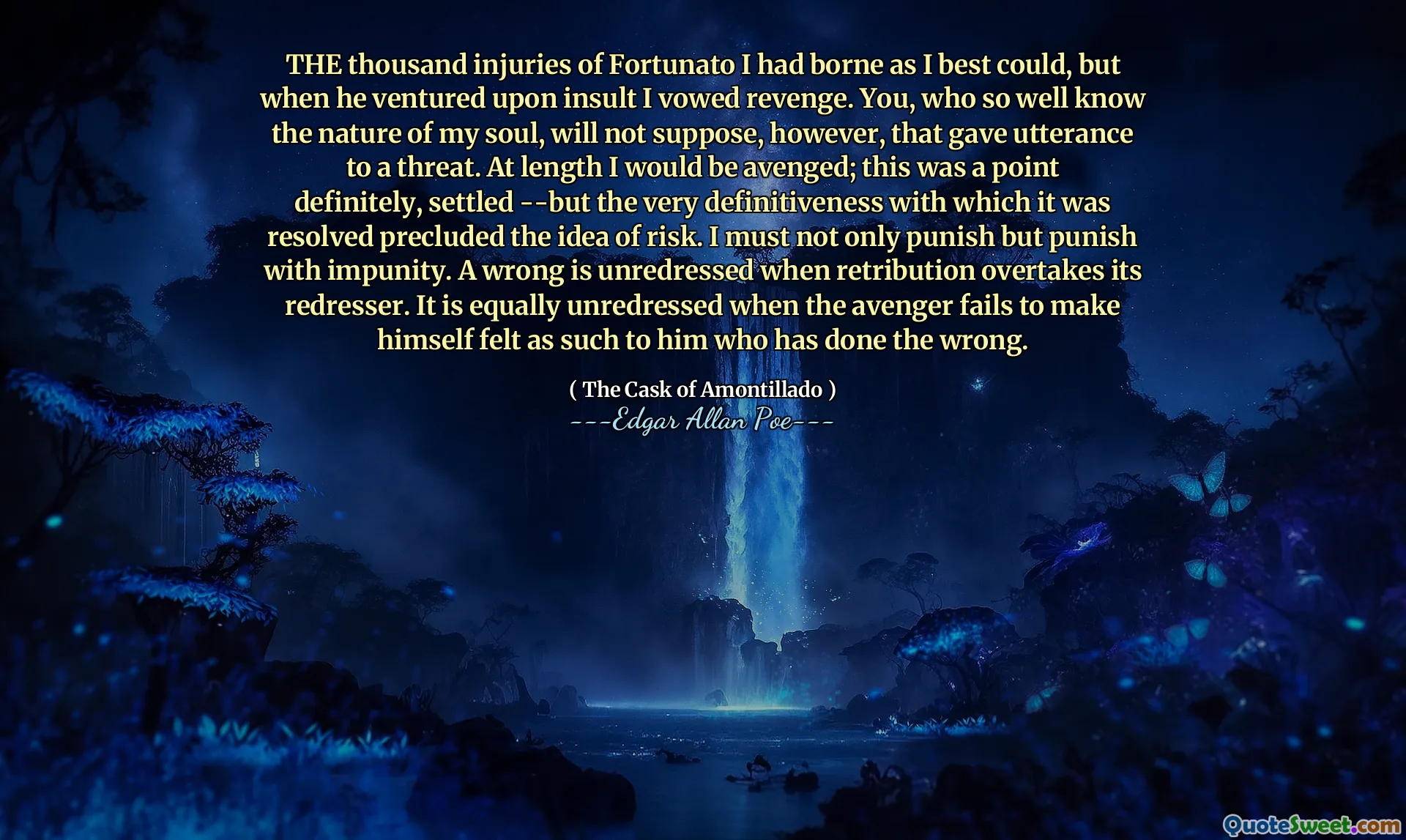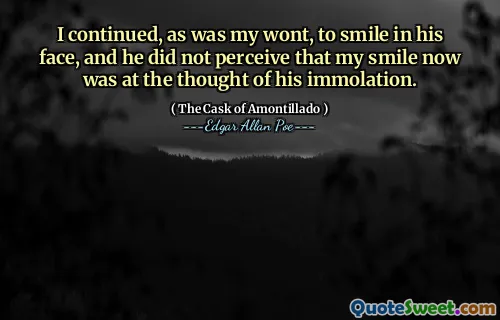
THE thousand injuries of Fortunato I had borne as I best could, but when he ventured upon insult I vowed revenge. You, who so well know the nature of my soul, will not suppose, however, that gave utterance to a threat. At length I would be avenged; this was a point definitely, settled --but the very definitiveness with which it was resolved precluded the idea of risk. I must not only punish but punish with impunity. A wrong is unredressed when retribution overtakes its redresser. It is equally unredressed when the avenger fails to make himself felt as such to him who has done the wrong.
In "The Cask of Amontillado," the narrator expresses deep resentment towards Fortunato, who has wronged him repeatedly, leading to a desire for vengeance. Despite the anger that builds within him, he carefully considers his approach to ensure that his revenge can be executed without any risk of being caught. The narrator's determination focuses on not only punishing Fortunato but also ensuring that he feels the weight of that punishment. This involves a strategic plan where the avenger remains concealed in order to maintain the thrill of retribution.
The notion of retribution is intricately tied to the narrator's psychological state. He emphasizes that simply taking revenge is not enough; it must be done in a way that Fortunato recognizes who is delivering the punishment. This adds a layer of complexity to the narrator's quest, highlighting the importance of perception in revenge and the fulfillment it brings to the avenger. The careful planning and obsession with ensuring that Fortunato understands the consequences of his actions reveal the depth of the narrator's commitment to vengeance.








